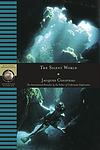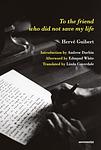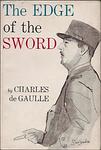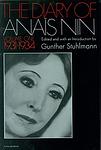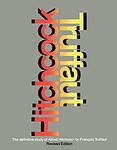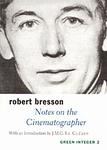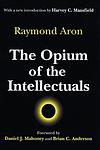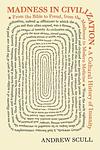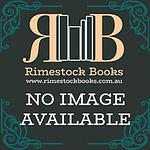The Greatest French, Austrian "Nonfiction" Books Since 1950
Click to learn how this list is calculated.
This list represents a comprehensive and trusted collection of the greatest books. Developed through a specialized algorithm, it brings together 300 'best of' book lists to form a definitive guide to the world's most acclaimed books. For those interested in how these books are chosen, additional details can be found on the rankings page.
Genres
Countries
Date Range
Reading Statistics
Click the button below to see how many of these books you've read!
Download
If you're interested in downloading this list as a CSV file for use in a spreadsheet application, you can easily do so by clicking the button below. Please note that to ensure a manageable file size and faster download, the CSV will include details for only the first 500 books.
Download-
1. Philosophical Investigations by Ludwig Wittgenstein
This book is a seminal work in 20th-century philosophy, presenting a detailed critique of the notion that our language directly corresponds to reality. The author argues that the meaning of words is not inherent, but rather derives from their use within specific forms of life. The book also introduces the concept of language games, suggesting that our understanding of language is akin to learning the rules of a game. The author further explores the limits of language, the nature of understanding, and the relationship between public and private language.
-
2. Mythologies by Roland Barthes
This book is a collection of essays that explore the layers of cultural and societal meanings that are imbued in everyday objects, activities, and phenomena. The author decodes the symbols and signs embedded in things as varied as wrestling, soap detergents, toys, and even the face of Greta Garbo. The book is a pioneering exploration of semiotics, the study of signs and symbols, and it challenges readers to question and understand the cultural connotations and ideologies that are presented as natural or given in our everyday lives.
-
3. Tristes Tropiques by Claude Lévi-Strauss
"Tristes Tropiques" is a blend of autobiography, travel literature, and anthropology by a renowned scholar. The book is a recounting of the author's travels and anthropological work, primarily in Brazil, in the 1930s. It provides a critical and philosophical reflection on his experiences and observations, offering insights into indigenous tribes like the Nambikwara and Tupi-Kawahib, and exploring themes of cultural change, the nature of anthropology, and the author's own disillusionment with Western civilization.
-
4. Words by Jean Paul Sartre
This book is a memoir that explores the author's early life and development as an intellectual. He reflects on his childhood experiences in a non-linear narrative, detailing his relationship with his mother and grandfather, his early education, and his evolving understanding of language and literature. The author also delves into his philosophical ideas, examining the concept of existentialism and the role of the individual in society. The book serves as a profound exploration of the power of words and the impact of childhood experiences on adult life.
-
5. Discipline and Punish by Michel Foucault
This book delves into the historical evolution of the penal system, examining how Western societies have transitioned from a regime of violent, public physical punishment to a more subtle form of surveillance and control. It introduces the concept of the "panopticon," a metaphor for modern disciplinary societies that exercise power through observation and normalization rather than through overt physical coercion. The work explores the relationship between power, knowledge, and social control, arguing that disciplinary mechanisms are embedded in various institutions, such as schools, hospitals, and prisons, shaping individuals and maintaining order in society.
-
6. The Constitution of Liberty by Friedrich von Hayek
This book is a comprehensive analysis of the concept of liberty, emphasizing the importance of individual freedom in political, societal, and economic contexts. The author argues that a free society, where individuals can act according to their own decisions and plans, is the most effective system for human progress. He also explores the relationship between law and liberty, the role of government in a free society, and the challenges to liberty posed by concepts such as social and economic justice.
-
7. Promise at Dawn by Romain Gary
"Promise at Dawn" is a semi-autobiographical novel that explores the life of a young man growing up in Eastern Europe, and later in France, under the shadow of his ambitious and eccentric mother. The protagonist's journey takes him through various phases of his life from his childhood, through his experiences as a pilot in World War II, to his adult life as a diplomat and a writer. The story is a tribute to the protagonist's mother, who instilled in him the values of courage, resilience, and the pursuit of grandeur, even in the face of adversity.
-
8. The Rebel by Albert Camus
"The Rebel" is a philosophical exploration of rebellion and revolution. It dissects the nature and origins of rebellion, arguing that it arises from a basic human refusal to accept injustice. The book delves into the many forms rebellion can take, from personal revolt to political revolution, and examines the consequences and ethics of each. The author also critically evaluates the rebellious attitudes of various historical figures and movements, highlighting the potential for rebellion to either affirm or destroy human dignity.
-
9. The Uses of Enchantment by Bruno Bettelheim
"The Uses of Enchantment" is a psychological analysis of fairy tales and their importance in childhood development. The book argues that these stories allow children to navigate their emotions and understand aspects of life they are yet to experience. By exploring various themes, such as separation anxiety, oedipal conflict, and sibling rivalry, through well-known fairy tales, the author demonstrates how these narratives contribute to a child's moral education and understanding of the human nature.
-
10. On Aggression by Konrad Lorenz
"On Aggression" is a scientific study that explores the concept of aggression in both animals and humans from an ethological (study of animal behavior) perspective. The author argues that aggression is an innate and necessary instinct that has helped species survive and evolve. However, he also emphasizes that this instinct, when unchecked or misdirected, can lead to destructive behavior and violence. The book provides a comprehensive analysis of the biological roots of aggression, its role in the evolution and survival of species, and its implications for human society.
-
11. Seven Years in Tibet by Heinrich Harrer
This book is a travel memoir that recounts the author's escape from a British internment camp in India during World War II and his subsequent journey through the Himalayas to Tibet, where he becomes a tutor and friend to the Dalai Lama. The book provides a detailed account of Tibetan culture, customs, and the political turmoil leading up to the Chinese invasion, as seen through the eyes of a foreigner who spent seven years living there.
-
12. The Silent World by Jacques Cousteau
"The Silent World" is an autobiographical account of a pioneering oceanographer and his team's underwater explorations. The book documents their adventures and discoveries, including the development and use of the first scuba diving equipment. The author shares his experiences of exploring shipwrecks, interacting with various marine life, and the dangers they faced in the depths of the ocean. The book also emphasizes the importance of marine conservation and the need to protect our oceans.
-
13. For a New Novel by Alain Robbe-Grillet
"For a New Novel" is a collection of essays by a prominent French writer and filmmaker, where he challenges the traditional norms of narrative and character development in novels. The author argues for a new form of novel, one that focuses more on the objectivity of description and the presentation of things as they are, rather than on the psychological analysis of characters. He criticizes the conventional novel for its reliance on plot, causality, and character development, and instead proposes a novel that is more concerned with the surface of things, their materiality and their presence in space and time.
-
14. Papillon by Henri Charrière
The book is a memoir that chronicles the harrowing experiences of a Frenchman who is wrongfully convicted of murder and sentenced to life in the penal colonies of French Guiana. Determined to regain his freedom, he makes numerous escape attempts, facing incredible odds and enduring brutal conditions. His indomitable spirit and will to survive lead him through a series of adventures and misadventures, including solitary confinement, a stint in a leper colony, and living with indigenous tribes. Throughout his ordeal, his nickname, derived from the butterfly tattoo on his chest, becomes a symbol of his unyielding quest for liberty.
-
15. To The Friend Who Did Not Save My Life by Hervé Guibert
The book is a candid and harrowing autobiographical novel that chronicles the life of a man grappling with the devastating impact of AIDS during the early years of the epidemic. Through a blend of fact and fiction, the narrative delves into the protagonist's personal experiences with illness, the medical establishment, and the emotional complexities of friendship and mortality. As he confronts his own declining health, the protagonist reflects on the relationships with those around him, including a close friend who is also facing the disease, and the betrayal he feels when a promised miracle cure fails to materialize. The novel is a raw and poignant exploration of the human condition in the face of an unforgiving illness.
-
16. The Tao of Physics by Fritjof Capra
The book explores the parallels between modern physics and eastern mysticism. It draws connections between quantum mechanics, relativity theory and concepts in Hinduism, Buddhism, Taoism, and Zen. The author argues that the two seemingly disparate areas of study - physics and mysticism - both seek to understand the fundamental nature of the universe and that they do so in strikingly similar ways. The book challenges conventional thinking and encourages readers to see the world from a more holistic, interconnected perspective.
-
17. Three Case Histories by Sigmund Freud
"Three Case Histories" is a compilation of three of the most famous case studies by a renowned psychoanalyst, exploring the complexities of the human mind. The book includes the cases of 'Little Hans', a boy with a phobia of horses, 'The Rat Man', an obsessive-compulsive patient, and 'The Wolf Man', a wealthy Russian aristocrat suffering from a variety of psychoneurotic symptoms. The author uses these cases to demonstrate his theories on psychoanalysis, childhood sexuality, the interpretation of dreams, and the subconscious.
-
18. The Edge of the Sword by Charles De Gaulle
"The Edge of the Sword" is a compelling exploration of the art of leadership and the nature of power. The author, a prominent military and political figure, delves into the essence of politics and the requirements of leadership, emphasizing the need for strength, courage, and an unwavering commitment to one's principles. The book also provides a unique insight into the author's own leadership style and his views on France's role in the world.
-
19. The Diary of Anais Nin, 1931-1934 by Anaïs Nin
This book is a deeply personal journal of a woman's life from 1931 to 1934, providing an intimate look into her experiences, thoughts, and emotions during this period. The author explores her relationships, her struggles with her writing, and her journey of self-discovery. The diary also captures her interactions with notable personalities of the time, giving readers a unique glimpse into the cultural and social milieu of the early 20th century. Her introspective and poetic style adds a layer of depth to her observations and reflections.
-
20. Wittgenstein's Nephew by Thomas Bernhard
"Wittgenstein's Nephew" is a semi-autobiographical novel that explores the friendship between the narrator and his friend Paul, who is the nephew of the famous philosopher Ludwig Wittgenstein. The story takes place in Vienna and is set against the backdrop of the Austrian mental health system. The novel delves into themes of sanity, insanity, and the fine line that separates the two, while also offering a critique of Austrian society. It is a meditation on the nature of illness, both physical and mental, and the impact it has on personal relationships and one's perception of the world.
-
21. Hitchcock by Francois Truffaut
The book is a comprehensive exploration of Alfred Hitchcock's films, based on a week-long series of interviews between the iconic British director and a renowned French filmmaker. It delves into Hitchcock's cinematic style, thematic preoccupations, and technical innovations, providing insights into his creative process. The dialogue format allows readers to witness an exchange of ideas between two film industry giants, offering a deeper understanding of Hitchcock's influence on cinema and his status as the master of suspense. The book also includes numerous stills from Hitchcock's films, adding a visual dimension to the discussion and making it an invaluable resource for film students, enthusiasts, and professionals alike.
-
22. Notes On The Cinematographer by Robert Bresson
"Notes on the Cinematographer" is a collection of aphoristic insights and reflections that delve into the art and philosophy of film-making. Compiled from the personal working notebooks of a renowned filmmaker, the book offers a unique exploration of the aesthetic and technical aspects of creating cinema. It emphasizes the importance of purity and restraint in the filmmaker's craft, advocating for a style that eschews theatricality in favor of revealing the hidden truths of characters and scenes through a minimalist approach. The work serves both as a practical guide and a philosophical treatise on the medium, providing readers with a deeper understanding of the author's distinct approach to filmmaking.
-
23. The Opium Of The Intellectuals by Raymond Aron
The book in question is a critical examination of the prevailing political ideologies and intellectual trends of the mid-20th century, particularly focusing on the seductive nature of Marxist thought among European intellectuals. The author argues that these intellectuals often embraced Marxism not for its empirical validity but as a secular religion, an "opium" that provided a comforting sense of certainty and moral superiority. The work challenges the dogmatic adherence to ideological orthodoxy and calls for a more skeptical, empirical approach to social and political analysis, advocating for the values of liberal democracy and the importance of individual freedom over utopian visions.
-
24. Madness And Civilization by Michel Foucault
The book is a profound and critical exploration of the history of the treatment of the mentally ill in Western society, tracing the shifting boundaries between madness and sanity from the Middle Ages to the end of the 18th century. The author argues that the way people with mental illness were treated was a reflection of the cultural, social, and intellectual mores of the time. He examines the evolution of institutions such as asylums and the role of medical and philosophical discourse in defining and managing madness, suggesting that the treatment of the mentally ill has often been a way of exerting social control rather than a genuine effort to help those suffering. The work challenges readers to reconsider the relationship between reason, unreason, and the structures of power and knowledge.
-
25. The Peasants Of Languedoc by Emmanuel Le Roy Ladurie
This historical study delves into the social and economic conditions of rural life in the Languedoc region of France from the 15th to the 18th centuries. It examines the impact of climate, the cultivation of vineyards, and the influence of market forces on peasant life, revealing the cyclical nature of prosperity and hardship in agrarian society. The book also explores the effects of demographic changes, including the consequences of the Black Death and other epidemics, on the structure and dynamics of peasant communities. Through meticulous archival research, the work paints a detailed picture of how these farmers adapted to changing times, and how their lives were shaped by both local conditions and broader European trends.
Reading Statistics
Click the button below to see how many of these books you've read!
Download
If you're interested in downloading this list as a CSV file for use in a spreadsheet application, you can easily do so by clicking the button below. Please note that to ensure a manageable file size and faster download, the CSV will include details for only the first 500 books.
Download










